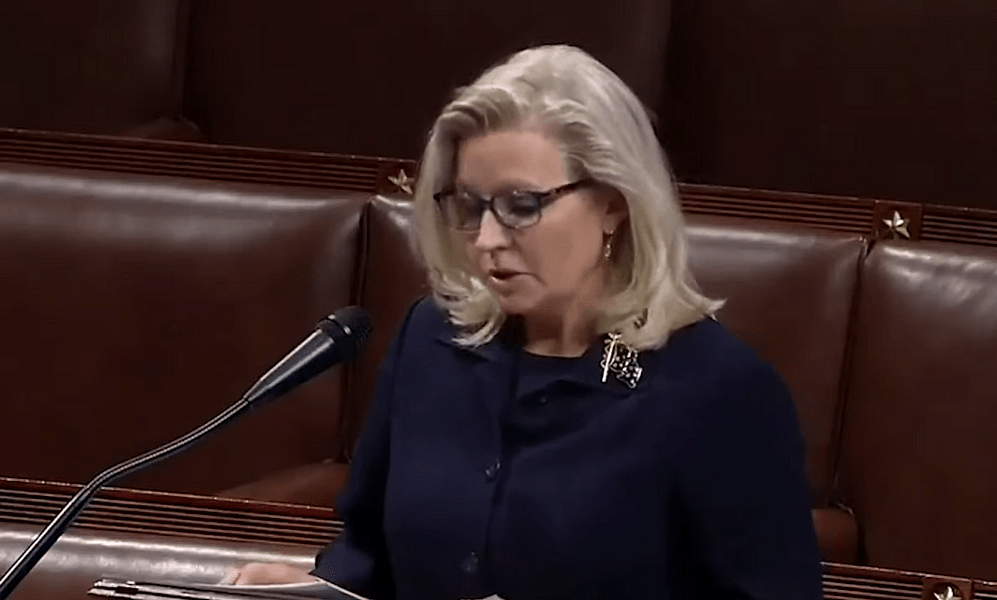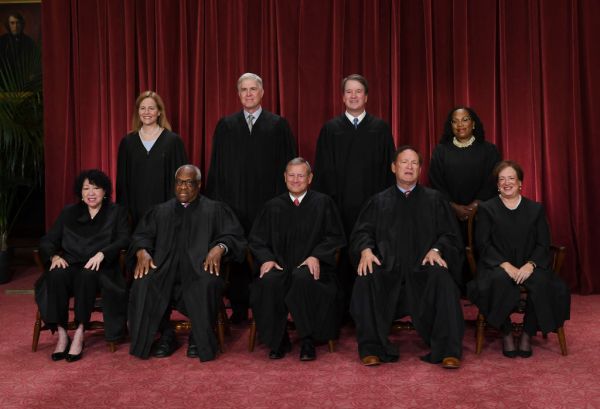Happy Wednesday! Surprise, there’s a Dispatch Live tonight! Join Steve, Jonah, Sarah, and David at 8:30 p.m. ET for what is sure to be a lively discussion of the news of the day. More details can be found here.
Quick Hits: Today’s Top Stories
-
U.S. job openings hit a record high in March, with the Labor Department reporting there were 8.12 million positions available—the most ever in the Job Openings and Labor Turnover Survey, which dates back to December 2000.
-
Israeli-Palestinian hostilities continued Tuesday, with Hamas launching rockets into Tel Aviv and Beersheba and Israeli forces retaliating with hundreds of air strikes. At least 35 people have reportedly been killed in Gaza, and five in Israel.*
-
A study conducted by the Cleveland Clinic found that of the approximately 4,300 COVID-19 hospitalizations at its clinic between January 1 and April 13, 99.75 percent were not fully vaccinated. Among the Cleveland Clinic’s own employees, 99.7 percent of the COVID-19 infections over that same time period occurred in individuals who were not fully vaccinated.
-
The White House yesterday announced a partnership with Uber and Lyft to ensure all rides to and from vaccination sites are free until July 4.
-
A federal judge on Tuesday dismissed the National Rifle Association’s bankruptcy case, saying he believed the gun rights organization was trying “to gain an unfair advantage in litigation or to avoid a regulatory scheme.” The decision will allow New York Attorney General Letitia James’ lawsuit against the NRA for alleged fraud to proceed.
-
The Department of Education announced Tuesday its reversal of a Trump administration policy preventing undocumented college students from accessing federal relief grants to offset expenses during the COVID-19 pandemic.
-
The United States confirmed 30,270 new cases of COVID-19 yesterday per the Johns Hopkins University COVID-19 Dashboard, with 2.9 percent of the 1,057,130 tests reported coming back positive. An additional 651 deaths were attributed to the virus on Tuesday, bringing the pandemic’s American death toll to 582,791. According to the Centers for Disease Control, 31,210 Americans are currently hospitalized with COVID-19. Meanwhile, 1,533,180 COVID-19 vaccine doses were administered Tuesday, with 153,448,316 Americans having now received at least one dose.

Republicans to Oust Cheney Today
Delivering what was very likely her final floor speech as a member of House GOP leadership on Tuesday night, Rep. Liz Cheney struck a defiant tone, attempting to define the stakes of this morning’s closed-door GOP conference vote to oust her from her leadership position for her criticism of Donald Trump and his role in propagating false claims about the 2020 election and the January 6 assault on the Capitol.
“This is not about policy; this is not about partisanship,” she said, in remarks spoken in a mostly empty House chamber. “This is about our duty as Americans. Remaining silent and ignoring the lie emboldens the liar. I will not participate in that. I will not sit back and watch in silence, while others lead our party down a path that abandons the rule of law and joins the former president’s crusade to undermine our democracy.”
Republicans will meet at 9 this morning for their weekly conference gathering, and Minority Leader Kevin McCarthy told members earlier this week to expect a vote on Cheney’s fate. “These internal conflicts need to be resolved so as to not detract from the efforts of our collective team,” McCarthy wrote in a letter, claiming that Republicans, “unlike the left,” welcome free thought and debate. “Having heard from so many of you in recent days, it’s clear that we need to make a change.”
North Carolina Rep. Virginia Foxx is planning to introduce the resolution calling for Cheney’s removal, an aide familiar with the plan told The Dispatch, and members are expected to cast their votes via a secret ballot.
The vote is likely to be lopsided, as Cheney and her team are not whipping her colleagues to support her. Sources close to Cheney tell The Dispatch that Cheney understood well that she was risking her leadership position by continuing to speak out about the party’s eager embrace of election conspiracies and the man who’s amplifying them. Even allies who backed Cheney in a similar vote a few months ago are abandoning ship. In late January, Rep. Mike Gallagher, a close friend of Cheney’s, said Republicans “need Liz’s leadership,” and that the GOP “must be a big tent party or else condemn ourselves to irrelevance.” Yesterday, he confirmed he will vote against Cheney, arguing she “can no longer unify the House Republican conference in opposition to [the Democrats’] agenda.”
He wasn’t alone. Rep. Chip Roy—who in January said Cheney “should be commended, not condemned, for standing up in defense of the Constitution”—circulated a letter yesterday arguing she has since “forfeited her ability to be our spokesperson by pulling us into distraction.”
“From a position specifically designed to speak for all of us, she has been looking backwards while repeatedly and unhelpfully engaging in personal attacks and finger-wagging towards President Trump rather than leading the conference forward with a unifying message both on elections and more broadly,” he continued, disputing the notion that today’s vote is about whether the election was stolen or not.
But Cheney, in her remarks last night, framed the debate in those exact terms.
“Today, we face a threat America has never seen before,” she said. “A former president, who provoked a violent attack on this capital in an effort to steal the election, has resumed his aggressive effort to convince Americans that the election was stolen from him. He risks inciting further violence. Millions of Americans have been misled by the former president. They have heard only his words, but not the truth, as he continues to undermine our democratic process, sowing seeds of doubt about whether democracy really works at all.”
In an earlier era, Cheney’s words would not be at all controversial. But that is not the world in which we live. “The problem is you can’t have a Republican conference chair who continually recites Democrat talking points,” Ohio Rep. Jim Jordan—who was involved in the previous attempt to kick Cheney out of her role—told reporters yesterday. “You can’t have a Republian conference chair who takes positions 90 percent of the party oppose.”
Cheney’s policy positions are well within the mainstream of her party. It’s only her views on Trump and his post-election behavior that put her at odds with many of her colleagues. This wasn’t always the case. Gallagher strongly condemned Trump’s behavior on January 6. McCarthy condemned Trump’s behavior and said that Trump “bears responsibility” for the violence of that day. Even stalwart Trump supporters like Sena. Lindsey Graham argued at the time that it was time to break with Trump. “All I can say is count me out, enough is enough, Graham said.
But Trump made clear he wouldn’t just fade away and many Republicans, eager to avoid the wrath he’s visited on Cheney, quickly moved beyond these concerns. McCarthy made a trip to Mar a Lago shortly after condemning Trump and this week Graham said the Republican Party can’t move forward without the former president. Sen. Mitch McConnell, who has previously criticized Trump’s election conspiracies and offered support to Cheney, has chosen to avoid another confrontation with the hope that Trump will fade away the longer he’s out of office.
That seems unlikely, with McCarthy choosing to put Trump at the center of Republicans’ effort to retake the House and other Republicans using Trump to raise money. The National Republican Senatorial Committee has sent 85 fundraising emails that mention Trump since April 24.
Back on Capitol Hill, the process will unfold today and over the rest of the week.
“I expect there’ll be a change in leadership, based on everything that I’ve read in the news,” freshman GOP Rep. Nancy Mace told The Dispatch outside the Capitol Tuesday evening, declining to reveal how she’ll vote. “I might talk about it tomorrow, but what happens in the family stays in the family.”
Once Cheney is removed from her post later today, Republicans will turn to replacing her—but that process isn’t likely to be completed until later in the week. With endorsements from Trump, McCarthy, and Republican Whip Steve Scalise, Rep. Elise Stefanik of New York is the overwhelming favorite to ascend to the role. You can read more about Stefanik’s background in Haley’s Uphill from last week, but she was one of Trump’s most outspoken defenders during his first impeachment and supported the former president’s efforts to overturn the election.
But on policy grounds, she’s much more moderate than most of the conference—and it’s making some hardliners nervous. “With all due respect to my friend, Elise Stefanik,” Roy wrote in the aforementioned letter, “let us contemplate the message Republican leadership is about to send by rushing to coronate a spokesperson whose voting record embodies much of what led to the 2018 ass-kicking we received by Democrats.”
He went on to note Stefanik opposed Trump’s tax cuts in 2017, and voted with Democrats on a series of climate and immigration initiatives.
In a brief interview with The Dispatch Tuesday evening, Roy encouraged party leaders to slow the process down. “They’re rushing it,” he said. “Let’s take care of the thing tomorrow, and let’s just take a step back.”
Rep. Marjorie Taylor Greene—whose repeated conspiracy-mongering resulted in her being stripped of her committee assignments earlier this year—echoed Roy’s concerns about Stefanik. “We just need options,” she told The Dispatch during House votes Tuesday evening. “We don’t need to make a vote for chair tomorrow, we just need to wait. Give it a little time to cool off.”
Cheney, for her part, isn’t walking away with her head bowed. She’s made clear in private conversations that she will continue to challenge Trump and the drift of her party from its principles.
Running on Empty
When a ransomware cyber attack took the Colonial Pipeline offline late last week, the company that manages it struck a soothing tone, saying it was aiming for “substantially restoring operational service by the end of the week.” But the news and subsequent public unease about the crimped supply chain have already triggered fuel shortages in some areas, as freaked-out motorists across the East Coast and southeast have made a run on the existing gas supply.
Numerous gas stations in states serviced by the pipeline—which stretches from Texas around the Gulf Coast and up to New York—were out of fuel Tuesday. Others saw long lines of anxious drivers trying to top off their tanks. In some places, the effect was self-perpetuating: People who hadn’t heard about the pipeline problem simply saw their neighbors lining up for gas and figured they’d better be safe than sorry, too.
In this sense, the immediate fuel shortage has a lot in common with some of the shortages of everyday household items like toilet paper we saw at the outset of the COVID-19 pandemic. The principal problem then was that typical levels of supply failed to meet unanticipated demand. But the extra pressure on fuel reserves across the region only narrows the window Colonial Pipeline has to get its infrastructure operational again without causing major difficulties.
In the meantime, some states serviced by the pipeline are facing greater difficulty than others. States near the northern end of the pipeline are less affected, since they have access to oil from other pipelines that cross Ohio and Pennsylvania. The news has also prompted increased movement of gasoline to the East Coast from Europe.
For its part, Colonial Pipeline Co. has gotten auxiliary parts of its fuel network working again, and has tried to narrow the gap by deploying a fleet of fuel trucks. But this is only a stopgap—and one the company says has a bottleneck in the form of a lack of available truckers.
We’ve also learned more since the weekend about DarkSide, the Eastern Europe-based hacking group the FBI has named as responsible for the attack. The group’s members, according to a CNBC report, do not typically carry out cyberattacks themselves: Rather, they develop ransomware tools that they then market to other hacking groups interested in committing crimes. The group also claims to operate in accordance with a bizarre code of ethics:
Cybereason reports that DarkSide has a perverse desire to appear ethical, even posting its own code of conduct for its customers telling them who and what targets are acceptable to attack. Protected organizations not to be harmed include hospitals, hospices, schools, universities, nonprofit organizations, and government agencies. Also apparently protected are entities based in former Soviet countries. Fair game, then, are all for-profit companies in English speaking countries.
In a statement on its website Monday, DarkSide seemingly acknowledged the Colonial Pipeline hack had violated their own stated “skim off the top” ethos: “We are apolitical, we do not participate in geopolitics, do not need to tie us with a defined government and look for our motives. Our goal is to make money, and not creating problems for society. From today we introduce moderation and check each company that our partners want to encrypt to avoid social consequences in the future.”
Worth Your Time
-
A conversation between Ramesh Ponnuru and Lyman Stone about the United States’ declining birth rate? Click. “I dislike language about ‘worry’ and ‘fear,’” Stone says, when asked if he’s concerned about the trend. “It’s better to ask whether low fertility is consistent with the things we value. We know from surveys that Americans actively intend and plan to have 2 to 2.3 children on average, yet at current rates will have just 1.64. … So it’s very clear that low fertility is ‘bad’ in the sense that it is not what Americans say they want.” (For the record: We don’t know anyone who plans to have 2.3 children.)
-
When the CDC reported that “less than 10 percent” of COVID-19 transmission occurs outside, most media sources were quick to take the agency at its word. But as the New York Times’ David Leonhardt pointed out in his morning newsletter Tuesday, this statistic is “almost certainly misleading,” with epidemiologists actually placing the rate of outdoor transmission at between 0.1 and 1 percent. “Saying that less than 10 percent of Covid transmission occurs outdoors is akin to saying that sharks attack fewer than 20,000 swimmers a year. (The actual worldwide number is around 150.) It’s both true and deceiving,” Leonhardt writes. “This isn’t just a gotcha math issue. It is an example of how the C.D.C. is struggling to communicate effectively, and leaving many people confused about what’s truly risky.”
Presented Without Comment
Also Presented Without Comment
Toeing the Company Line
-
Haley covered everything from the House Foreign Affairs Committee’s hearing on the Chinese government’s repression of ethnic minorities in Xinjiang to the possibility of compromise in the ongoing police reform conversation in Tuesday’s Uphill. Plus, more on Biden’s $4 trillion infrastructure proposal and efforts to remove Liz Cheney from her leadership position.
-
In this week’s Sweep, Sarah dug into some of the biggest takeaways from the 2020 election, partisan divides in social media usage, and the House GOP’s latest insurgency. Audrey, meanwhile, continued her first-rate coverage of the Republican gubernatorial primary in Virginia.
-
Newly minted AEI fellow Klon Kitchen joined Jonah on Tuesday’s Remnant for a discussion of foreign policy and cybersecurity. The pair explore how the U.S. should respond to recent cyber attacks, the merits of Section 230, and the distinction between dumb and smart hawkishness in national security.
Let Us Know
You can probably guess what will be a major theme of tonight’s Dispatch Live, but what else do you want to hear the gang discuss?
Reporting by Declan Garvey (@declanpgarvey), Andrew Egger (@EggerDC), Haley Byrd Wilt (@byrdinator), Audrey Fahlberg (@FahlOutBerg), Charlotte Lawson (@charlotteUVA), Ryan Brown (@RyanP_Brown), and Steve Hayes (@stephenfhayes).
Correction, May 12, 2021: Due to an editing error, a previous version of this newsletter referred to the Israeli-Palestinian conflict as a conflict “between Israel and Palestine.”







Please note that we at The Dispatch hold ourselves, our work, and our commenters to a higher standard than other places on the internet. We welcome comments that foster genuine debate or discussion—including comments critical of us or our work—but responses that include ad hominem attacks on fellow Dispatch members or are intended to stoke fear and anger may be moderated.
With your membership, you only have the ability to comment on The Morning Dispatch articles. Consider upgrading to join the conversation everywhere.